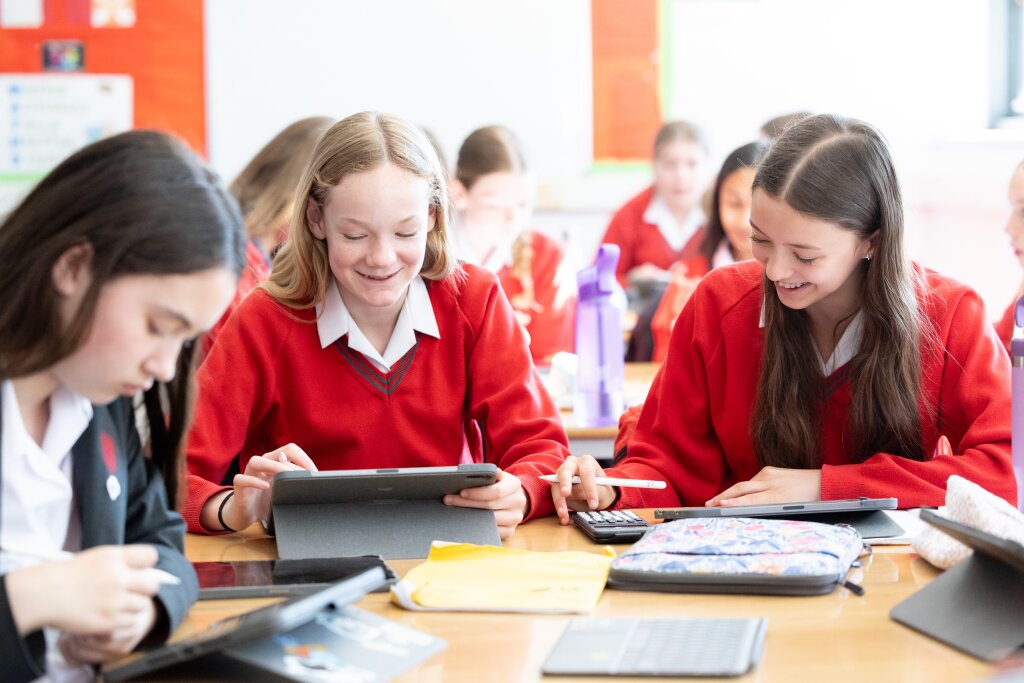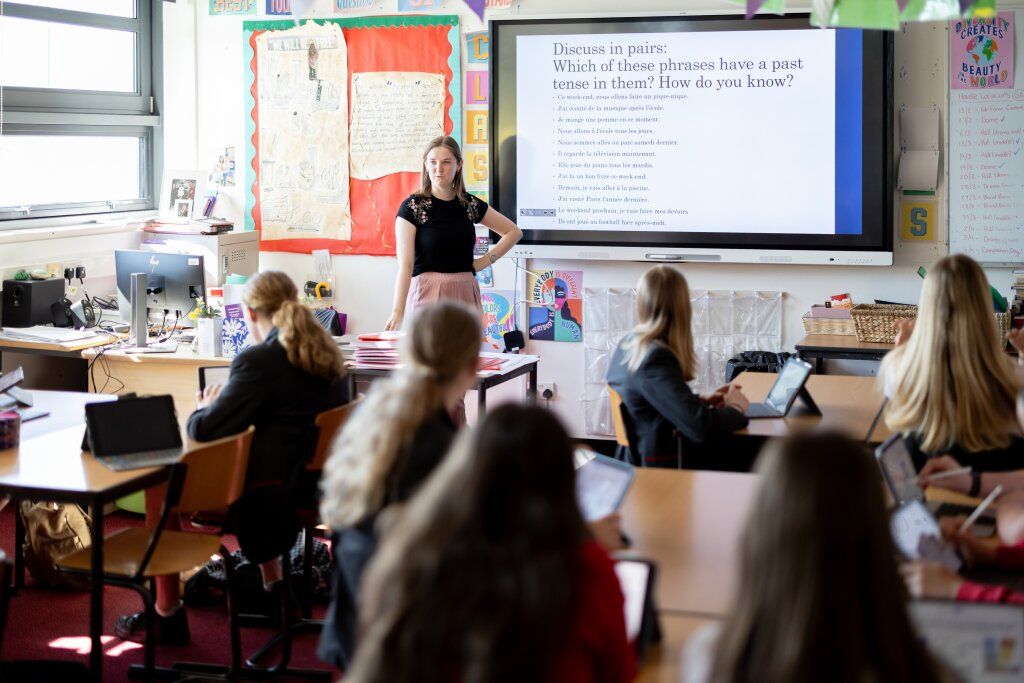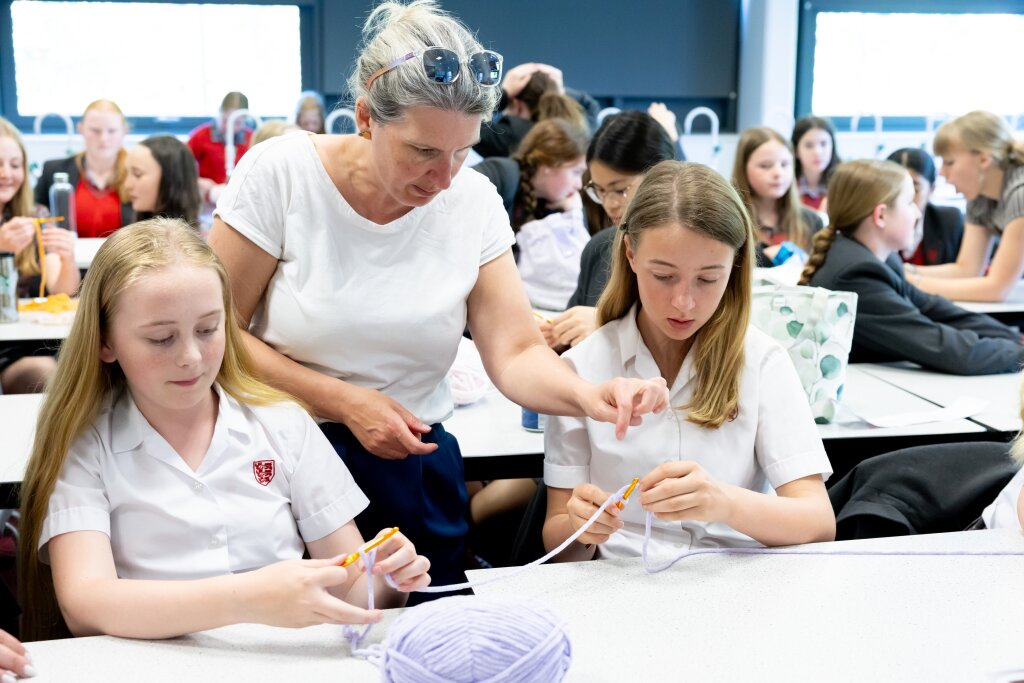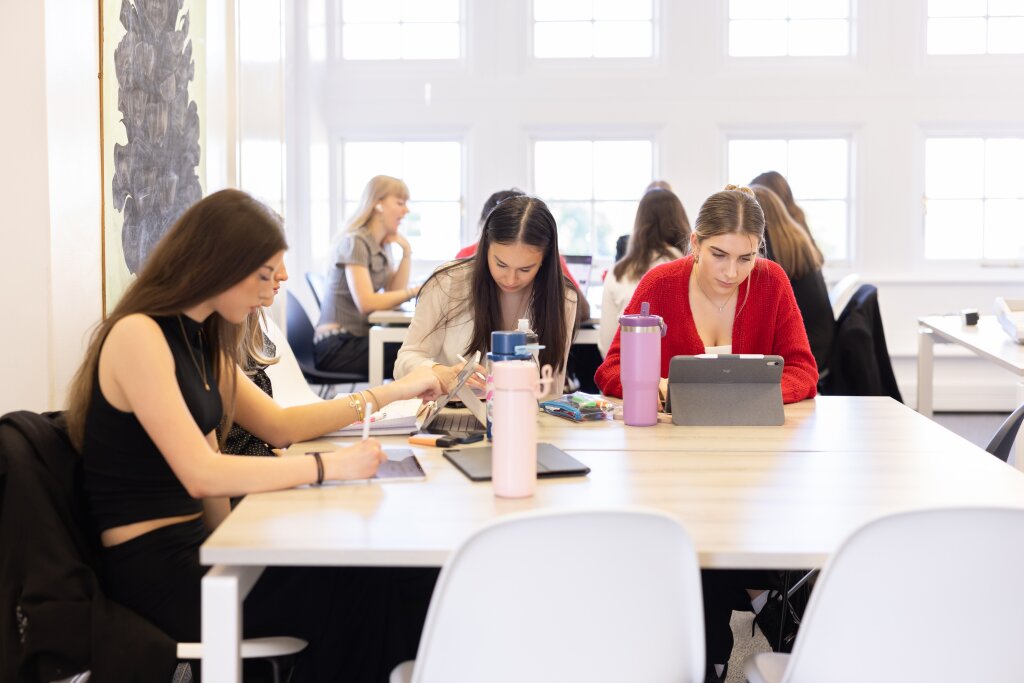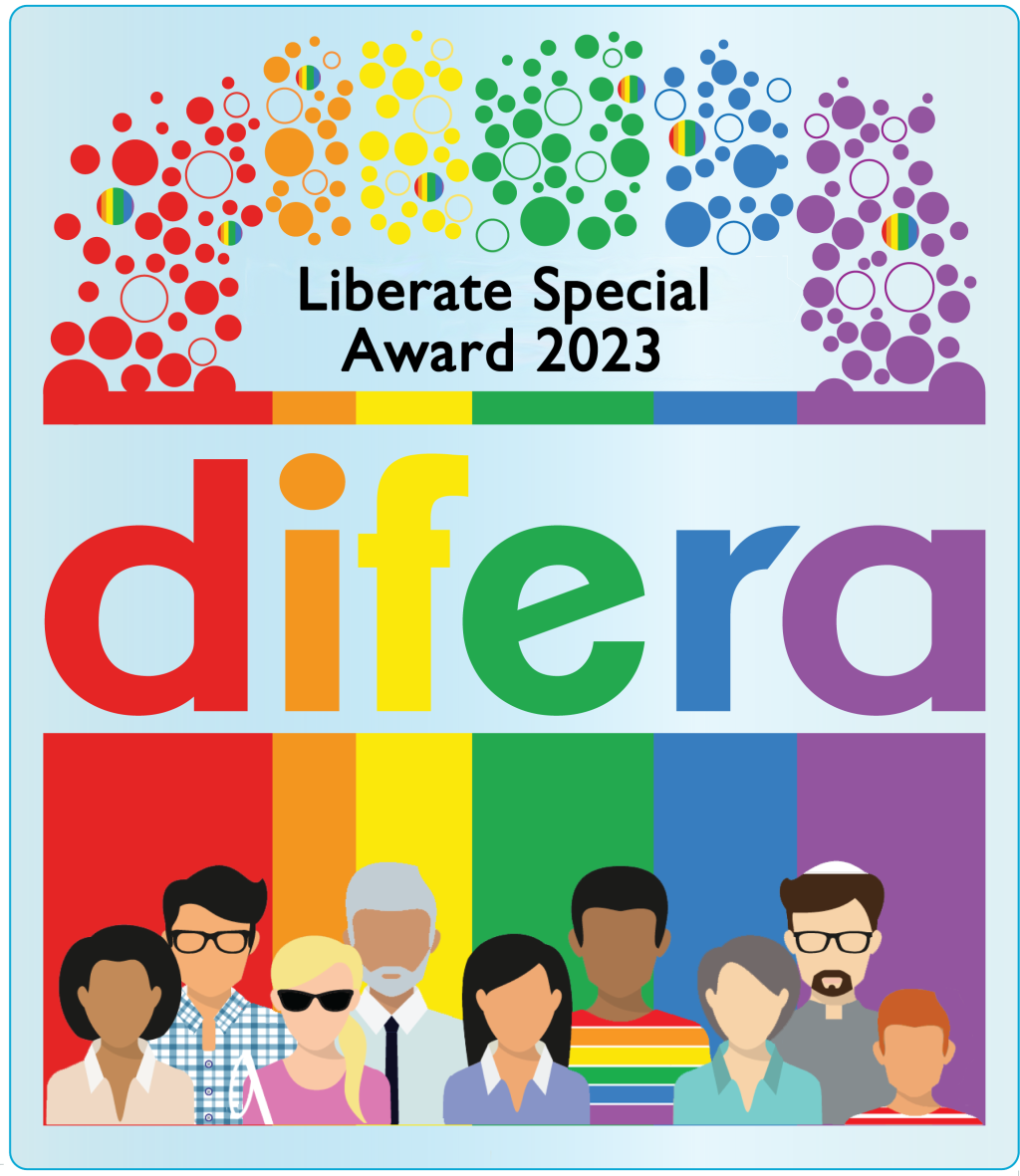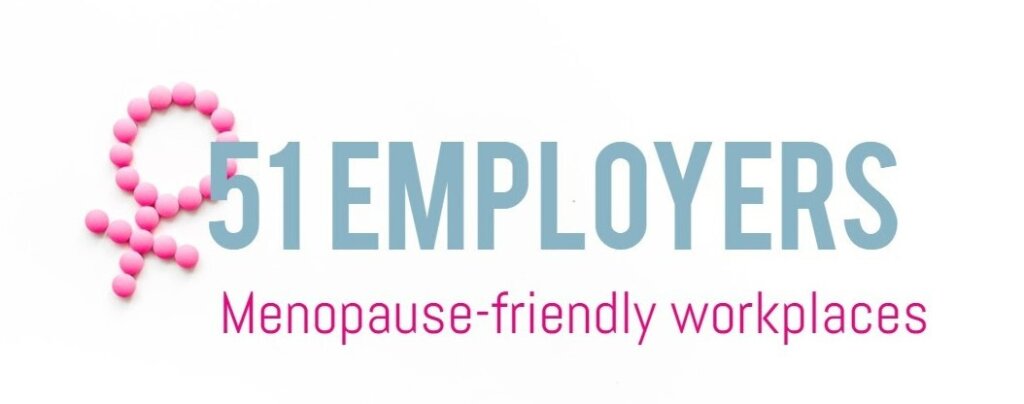Rapid developments in technology have encouraged us to think creatively and adapt to how we use technology to enhance and transform learning. We have been on a three-year journey and the lessons learned have been invaluable in providing the College with a platform upon which to build and develop an innovative and dynamic use of technology.
In September 2021, the start of our journey, we witnessed all Year 7 students successfully use a personal digital device in the majority of lessons to boost their learning experience.
From September 2023, all students in all year groups use a personal digital device regularly in lessons and for home learning, thus enabling the process of teaching and learning to be more efficient, personalised and targeted.
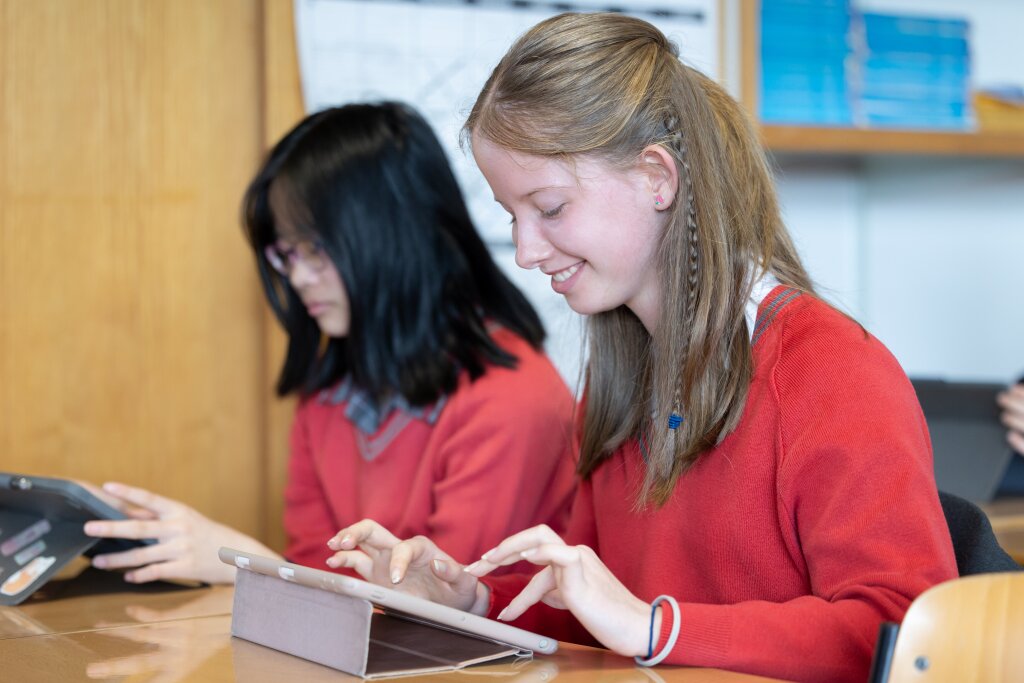
Teachers and students predominantly use Class Notebook (an adapted Microsoft OneNote) for lesson content and for the completion of learning tasks, such as essays, worksheets and past exam paper questions. Student work is either be typed or handwritten on screen.
In addition, we provide digital textbooks to all year groups where possible to improve the integration of a digital exercise book with annotated textbook pages.
As currently all GCSE and A level examinations are paper-based, we are cognisant that handwriting on paper is an essential skill to practice. Therefore, our Assessment policy requires that all end of topic tests and assessments, end of year exams and mock exams are paper based.
Through our imaginative and discerning use of technology we have been able to achieve greater success, accuracy and consistency in the following areas:
Through artificial intelligence diagnostic tools (Century Tech) identify gaps in learning and misconceptions
Through the use of ‘low stakes tests’, quizzes to students, to preview and review learning teachers are able to plan the next steps in learning with greater personalisation.
Bridging gaps in learning by providing personalised learning pathways
Supporting students who miss learning due to other commitments or illness
Supporting students who struggle with the pace of learning in lessons
Providing students with the opportunity to review the lesson content at a later date
Capturing an individual’s process of learning and hence seeing the impact of response to feedback in action
Encouraging curiosity through readily available quick access to the internet in College
Providing a safe space for collaboration and presentation of ideas
Future proofing education for students who are not physically in the classroom
Our drive to use technology in a more innovative and creative way has additional environmental and wellbeing benefits.
Reducing our impact upon our environment:
Being able to annotate notes digitally and complete worksheets on screen has led to a significant reduction in photocopying and the use of paper.
